ABOUT THE Wabanaki
The Wabanaki Confederacy (Waponahki) — translated as “People of the First Light” or “Dawnland” — currently comprises five principal nations: the Mi’kmaq, Maliseet, Passamaquoddy, Penobscot, and Abenaki, and stretches from Newfoundland in the north, to mid-Maine in the south, and parts of Quebec in the west. Historically, the confederacy united five Algonquin language-speaking Indian tribes. While the Wabanaki Confederacy was disbanded in 1862, the Mi’kmaq, Maliseet, Passamaquoddy, Penobscot nations still exist and remain closely aligned, in part because all peoples claiming Wabanaki lineage have forbearers from multiple Wabanaki and colonial ancestries.
As Europeans settled and seized land, the Wabanaki were relegated to remote and isolated places. Such is still the case today. A large share of the nearly 8,700 members of the four Wabanaki tribes in Maine reside in Aroostook and Washington counties — the northern and eastern portions of the state — in what are among the most economically challenged counties in the country. All the tribes have highly skilled artisans who continue to produce beautiful works of art — baskets, drums, carvings, canoes, jewelry and other traditional items.
Each of the Wabanaki tribes has its own territory made up of reservation, trust and/or fee lands. Trust lands, which include reservations, are parcels that are owned and controlled by the tribes but placed under trust protection by the federal Bureau of Indian Affairs. Fee lands do not enjoy the same protected status as trust lands and may be traded, sold, or mortgaged under the same conditions that apply to lands owned by non-Natives in Maine.
Aroostook Band of Micmacs
The Mi’kmaq are a First Nations people, indigenous to Maine, Atlantic Canada and the Gaspé Peninsula of Quebec. With the recent recognition of the Qalipu First Nation of Newfoundland and Labrador, the Micmac Nation now comprises 29 Bands with a total population of some 30,000 members. There are various explanations for the origin of the word Mi’kmaq, often centered around the concept of “the family.” The Aroostook Band received Federal Recognition in 1991 and has approximately 1,240 members in Maine, the majority of whom reside in Aroostook County. While the tribe has no reservation lands, it owns 2,674 acres of fee and trust land in the vicinity of Presque Isle – north as far as Stockholm and south as far as Littleton. The Aroostook Band is governed by a Chief, Vice Chief and a Tribal Council of ten members.
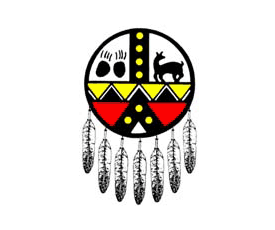
Houlton Band of Maliseets
Before contact with Europeans, the Maliseets occupied the Saint John River valley and its tributaries, a portion of which is now considered the eastern border line of the United States between Maine and the provinces of New Brunswick and Quebec. They called themselves Wolastoqiyik “People of the Beautiful River” after the Wolastoq River at the heart of their territory and pursued a primarily agrarian economy. Today, the larger Maliseet Nation has approximately 5,000 members. The Houlton Band of Maliseet Indians gained Federal Recognition in 1980 and has approximately 1,700 members, many of whom live in Aroostook County. The Houlton Band regards the Meduxnekeag River as home and owns parcels of fee and trust land totaling 1,343 acres. The governmental structure includes a six-member Tribal Council and an elected Chief.
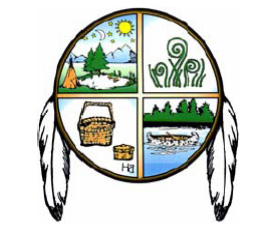
Passamaquoddy Tribe
Peskotomuhkati
The Passamaquoddy Tribe has two reservations in Washington County, Pleasant Point and Indian Township. The Passamaquoddy are a Native people whose territory is centered on the St. Croix River watershed, covering much of what is now northeastern Maine and western New Brunswick. The name “Passamaquoddy” is an Anglicization of the word Peskotomuhkati, which literally means “pollock spearer” or “those of the place where pollock are plentiful,” recognizing the importance of fishing as a source of food and economy. Although each Passamaquoddy reservation maintains its own government, the governing bodies of the two reservations come together to form the Joint Tribal Council.
As a result of the Indian Land Claims Settlement Act of 1980, Passamaquoddy at Indian Township holds land across five Maine Counties totaling some 140,000 acres. Tribal membership is 1,629. The Tribal Chief and Vice-Chief with six council members comprise the Pleasant Point Passamaquoddy Tribal Government and governing body.
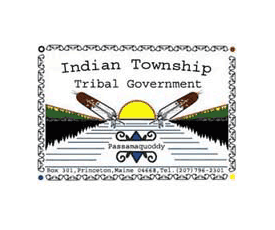
The Passamaquoddy at Pleasant Point membership is about 2,014 with a land size of 128,088 acres. The Passamaquoddy is a federally recognized Tribe and has its own constitution which was adopted in 1990 which fully describes its sovereign powers. The Tribal Sakom and Vice-Sakom along with six council members comprise the Pleasant Point Passamaquoddy Tribal Government and governing body.
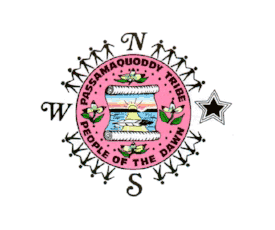
Penobscot Nation
The Penobscot are a sovereign people indigenous to what is now Atlantic Canada and the northeastern United States, primarily Maine. The name “Penobscot” is derived from Penawapskewi, which means “rocky part” or “descending ledges” and originally referred to the portion of the Penobscot River between Old Town and Bangor. The Penobscot Reservation consists of 4,866 acres of land that includes Indian Island and an additional 200 islands in the Penobscot River. Following the Indian Land Claims Settlement Act of 1980, the tribe acquired 86,378 acres of Trust Land and another 27,693 acres of fee land. Today, the membership of Penobscot Indian Nation is 2,398 people, with one-quarter of that number living on the reservation. Penobscot Nation is one of the oldest continuously operating governments in the world. The Tribal Council consists of 12 elected members and is led by the Tribal Chief and Vice Chief, each of whom is elected individually.
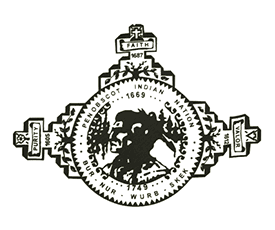
Learn More About Wabanaki History & Culture
Maine is lucky to have many great museums that focus on the history and culture of Wabanaki Tribes. Visit them in person or go to their websites!
- The Abbe Museum, www.abbemuseum.org
- The Hudson Museum, www.umaine.edu/hudsonmuseum
- The Maine State Museum, www.mainestatemuseum.org
If you live in Maine, or are just traveling through, the tribal museums are a great resource filled with community treasures and staffed by tribal members. Be sure to call ahead for opening days and hours.
- Indian Township Museum, (207) 796-5533
- Penobscot Nation Museum, (207) 827-4153
Visit the official websites of the Wabanaki tribes! Below are links to the Maine tribes; search online for links to the Wabanaki in Canada:


